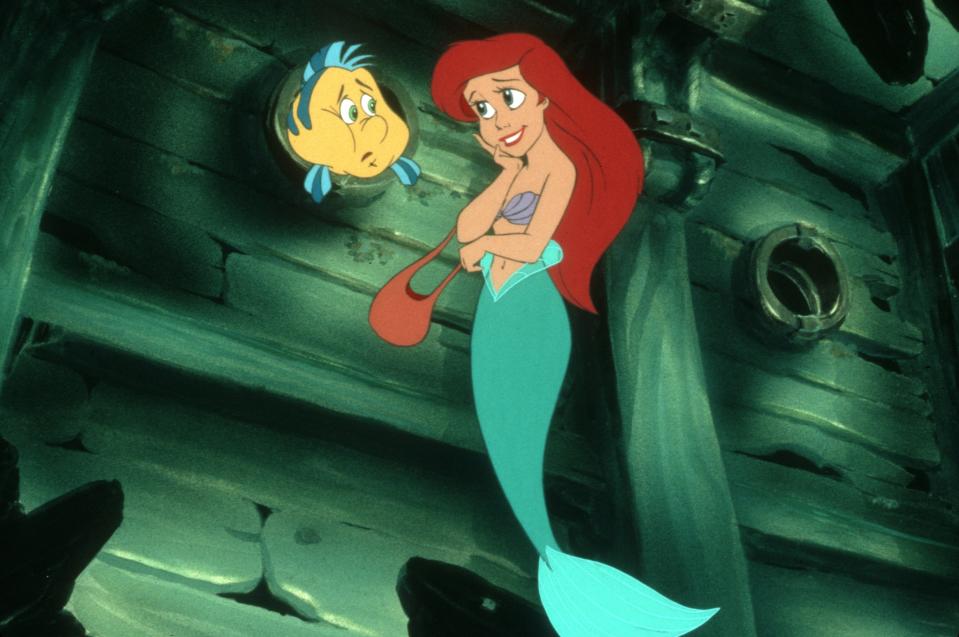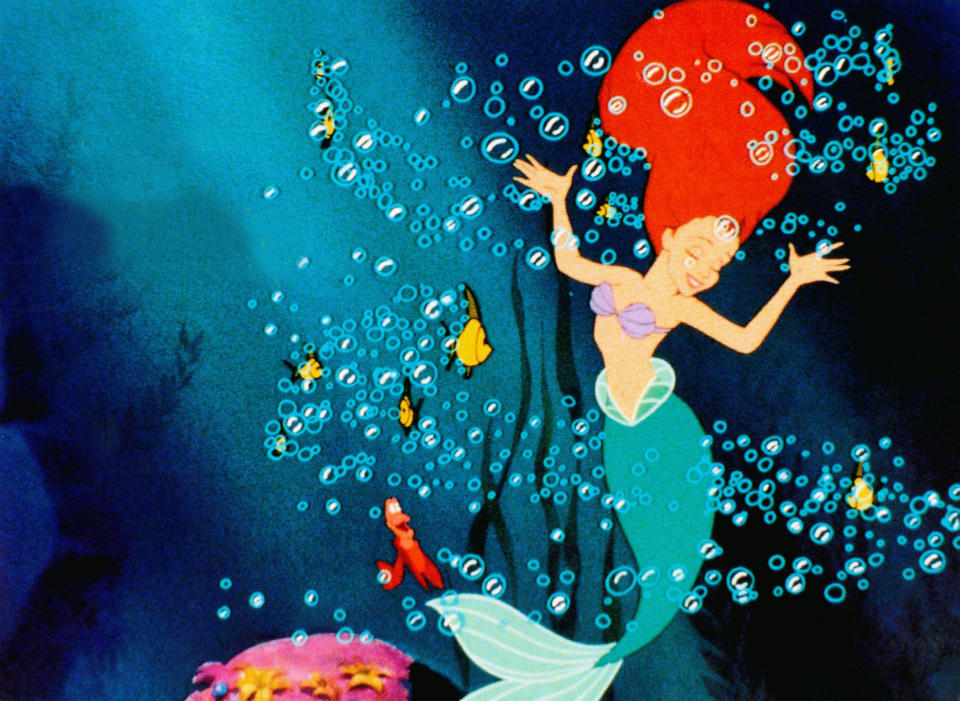'The Little Mermaid' at 30: Why the Disney classic is actually a feminist film
Disney's The Little Mermaid, released 30 years ago on Nov. 17, 1989, gets a lot of flak for being anti-feminist. So why do women still love the film? It is possible that they’re finding a different, more positive meaning in Ariel’s journey? Surprisingly, The Little Mermaid can actually be viewed as a feminist film, and Ariel as an empowered heroine. We even got the endorsement of Jodi Benson, the actress who brought Ariel to life. Watch it above.

When The Little Mermaid came out in 1989, it was the first Disney princess film since 1959’s Sleeping Beauty. The filmmakers wanted 16-year-old Ariel to be a more modern kind of fairy-tale heroine. And she is. Compared to Cinderella, Sleeping Beauty, and Snow White, who pine away for love until magic spells and handsome princes intervene, Ariel is a rebel, unapologetic about pursuing her own dreams and desires.
Still, Ariel does find love by sacrificing a key part of her identity: her voice. The same girl who starts out the film exploring shipwrecks and rebelling against her dad,ends the film in a wedding dress, saying, "I love you, Daddy."

How do we reconcile these two sides of The Little Mermaid? Let’s start with the idea that this story is not really about romance.
In the words of Jodi Benson, the voice actress who played Ariel: "Yes, we do have a romance story, but ultimately her desire was to reach for a world that was outside her own."

Ariel does fall in love, or at least Jordan Catalano-style infatuation, with Prince Eric. This crush strengthens her resolve to become part of the “world above” — which was the thing she already wanted, long before she set eyes on the prince. Like all teenagers, Ariel is desperate to break free from her parents’ world and find a place where she belongs. When she gives away her voice, it’s an extreme measure to achieve her dream: a life on land.
Sure, Ursula the sea witch makes it all about the prince — but she’s, you know, the bad guy. Rather than listening to what Ursula says, let’s look at what Ariel actually does once she gets her legs.

Instead of falling all over Prince Eric (which arguably, would be a more practical idea, since his kiss could free her from Ursula’s evil contract), she spends that precious time reveling in the human world. And while Ursula assures Ariel that human men prefer their women to be silent, the opposite proves true: Ariel’s voice is the reason Eric fell in love with her. And he doesn’t return her affections until he hears it again.
Ariel does not live happily ever after because she threw away her free will to get a husband. She went after the life she wanted, took big risks, made some mistakes, and in the end, it worked.

Even young viewers understand that Ariel is making a terrible bargain when she signs Ursula’s contract. And for kids, Prince Eric is an afterthought; Ariel’s life underwater is really the whole point.
Yes, Ariel makes some questionable choices. But there’s nothing un-feminist about wanting more; it is, in fact, what feminism is all about. Ariel taught Disney princesses and their audience to dream bigger. Belle has Ariel to thank for her library, Tiana for her restaurant, Moana for her ship. And Ariel is still speaking – to the bright young women, sick of swimming, ready to stand.
The Little Mermaid is now streaming on Disney+.
Read more from Yahoo Entertainment:
Viewers shred ‘Little Mermaid Live!’ on Twitter, prompting ABC exec to respond
The controversial song that’s not in Disney+’s live-action reboot of ‘Lady and the Tramp’
Want daily pop culture news delivered to your inbox? Sign up here for Yahoo Entertainment & Lifestyle's newsletter.

 generic
generic 
